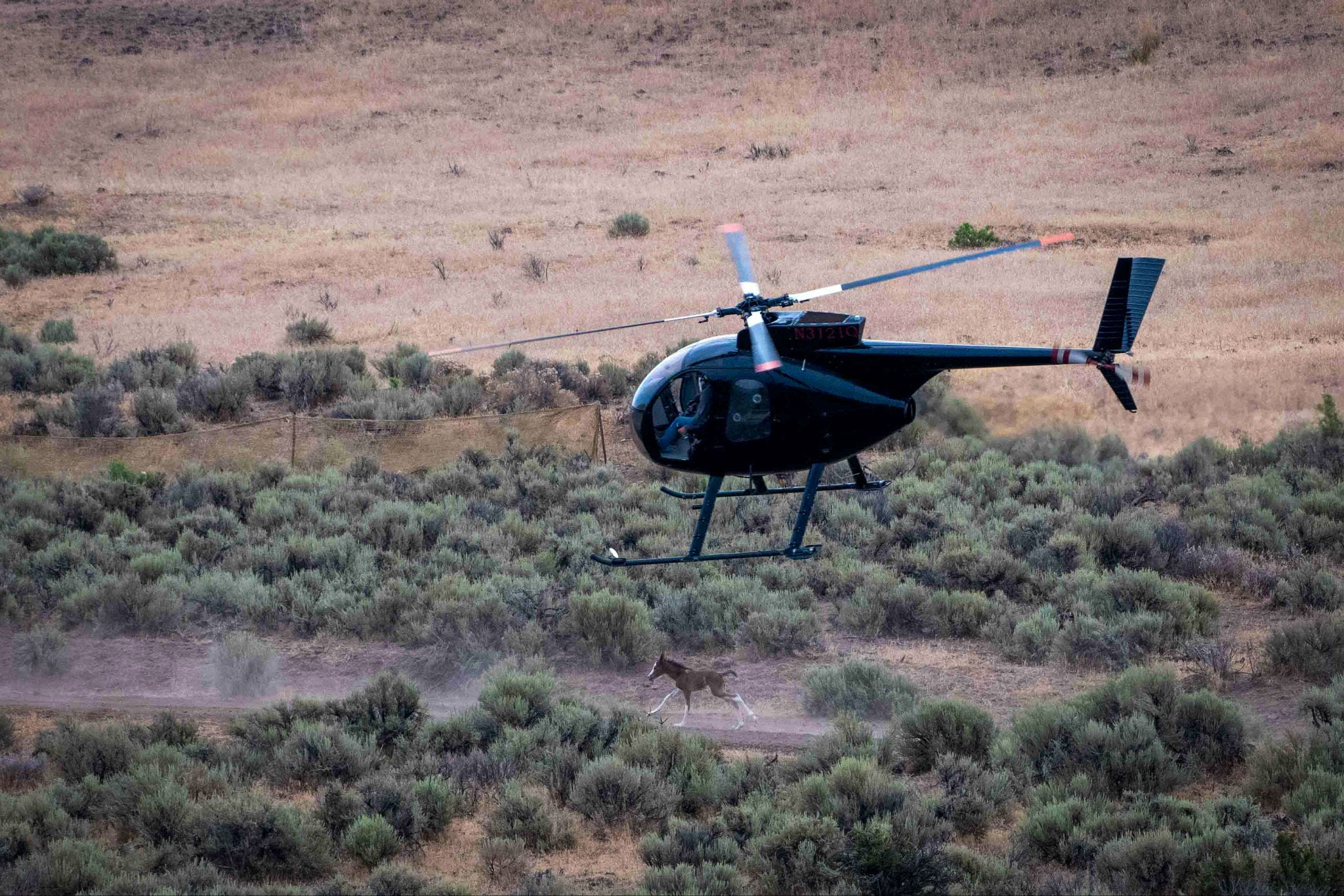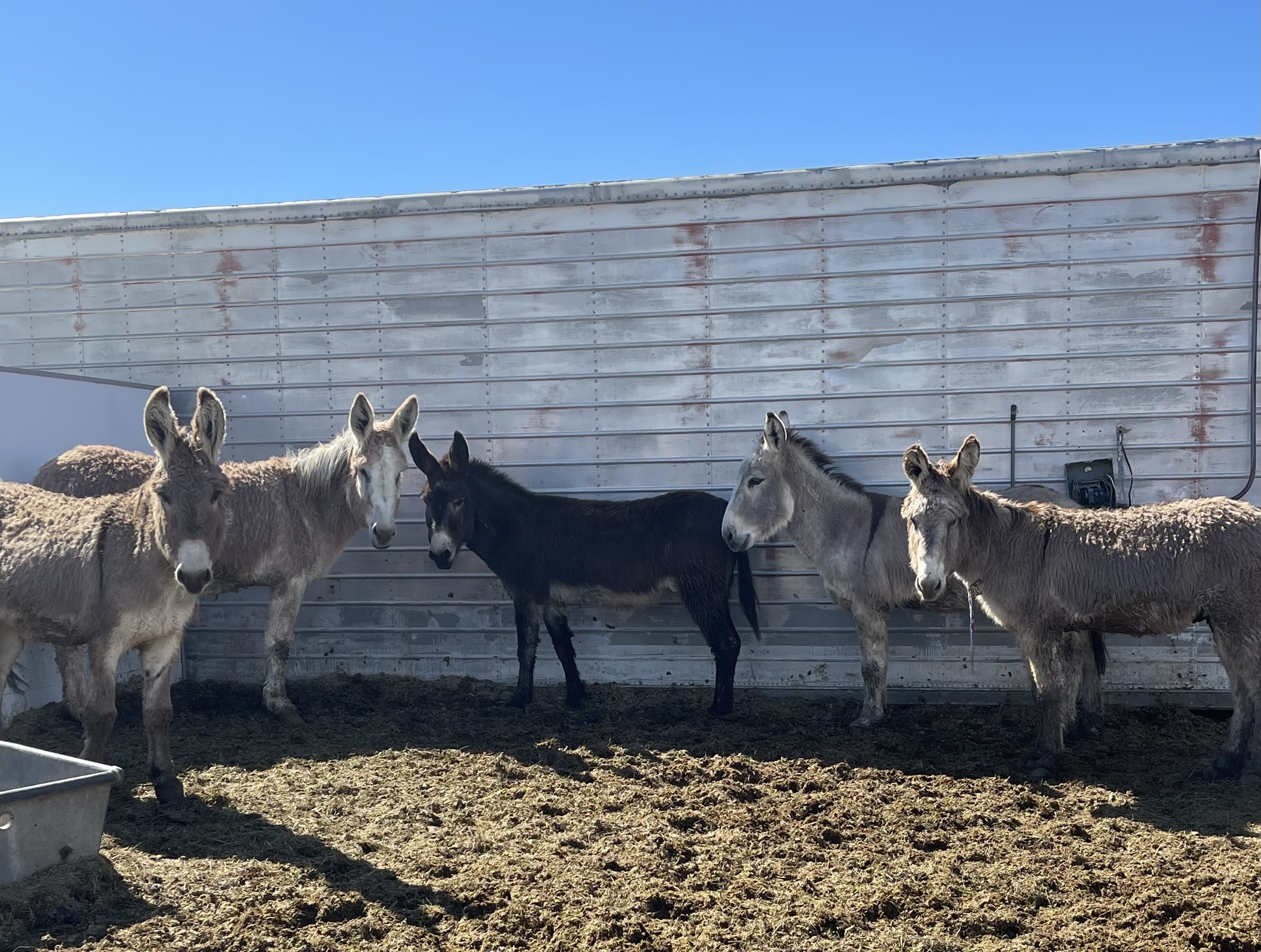Our latest findings.
The following is from the American Wild Horse Campaign:
The American Wild Horse Campaign’s Investigations Team has uncovered some dark information about the Bureau of Land Management (BLM)’s summer 2022 roundup in the Twin Peaks Herd Management Area (HMA).
Here’s the grim truth of what happened, and how our Investigations Team was able to uncover it:
The Twin Peaks HMA is located on the California/Nevada border, spanning an impressive 800,000 acres of land. This beautiful HMA was home to over 3,000 wild horses and burros before the helicopters descended on the expansive western landscape. The agency rounded up 2,450 wild animals, including many young and vulnerable foals who were just born only a few months before.
Photo of the 2022 Twin Peaks roundup by RJ Stein Photography
The BLM reported 31 deaths during the roundup, but when our team dug in and submitted a Freedom of Information Act (FOIA) request, we uncovered the heartbreaking reality – 69 additional animals died at the government holding facilities during and immediately after the roundup.
Fourteen of these deaths were very young foals, who were chased by helicopters in high summer temperatures, and for long distances over rocky terrain. The records we received revealed the brutality and pain they endured. One note in the death records stated: “This foal was unfortunately found dead in one of our isolation pens…foals are foundering due to being run too far during the gather.” Another revealed: “…suspect this foal’s death was from the stress of being run long distances in rough terrain and in high temperatures.” And there were many more notes just like those. It was heartbreaking.
Not only that, but during the roundup there were several very concerning animal welfare violations that occurred. Our observers on the ground documented BLM-contracted helicopters chasing far too many wild horses into a small pen, causing the pen to collapse. Two horses died, several were injured, and the contractor’s staff was placed in danger.
This roundup was conducted in extreme heat and the horses were chased long distances. AWHC brought these concerns to not only the onsite BLM Incident Commander, but also sent a formal complaint to BLM leadership. Despite this, there were no changes implemented during the roundup.
The animal welfare violations we documented and the records we received pulled back the curtain on the BLM’s inhumane Wild Horse and Burro Program and illuminated the impact of summer roundups on the most vulnerable animals. Meredith, AWHC is committed to using this information as a catalyst for change. We will work tirelessly to hold the BLM accountable for its actions and continue to advocate for improved policies and practices that prioritize the welfare of these magnificent creatures
Your support will empower us to amplify these records, engage with policymakers and mobilize our grassroots army. Together we can create a brighter future for America’s wild horses and burros.
Thank you for stepping up and supporting wild horses and burros.
AWHC Investigations Team







